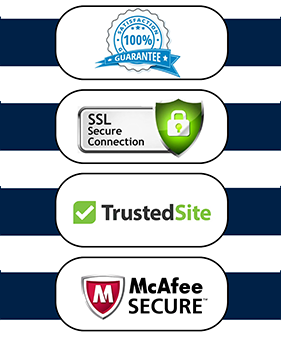
Linux Foundation CKS Exam Dumps
- Exam Name: Certified Kubernetes Security Specialist
- Certification Name: Linux Foundation Kubernetes Security Specialist Certification
- Exam Code: CKS
- Total Questions Provided: 48
- Last Updated: Apr 15, 2025




Certified Kubernetes Security Specialist (CKS) Exam
Cluster Setup and Hardening
The CKS exam tests your ability to set up a secure Kubernetes cluster from the ground up. You'll need to demonstrate expertise in configuring authentication, authorization, and network policies to ensure the cluster is hardened against potential threats. Understanding the various Kubernetes components and how to secure them is crucial for this section.
System Hardening and Minimizing Microservice Vulnerabilities
Securing the underlying systems and containers within a Kubernetes environment is a key focus of the CKS exam. You'll be expected to implement best practices for hardening the host operating system, managing container images, and mitigating vulnerabilities in microservices. Knowledge of container security principles and tools like Trivy or Falco will be beneficial.
Supply Chain Security and Runtime Security
The exam also covers the importance of securing the software supply chain and ensuring runtime security in a Kubernetes cluster. You'll need to demonstrate your ability to implement secure practices for container image scanning, vulnerability management, and runtime security monitoring using tools like Grafana and Prometheus.
Career Benefits and Job Opportunities
Earning the CKS certification showcases your expertise in Kubernetes security, making you a valuable asset to organizations seeking to secure their containerized applications and infrastructure. Potential job roles include:
- Kubernetes Security Engineer - Responsible for designing, implementing, and maintaining secure Kubernetes environments.
- DevSecOps Specialist - Integrating security practices into the DevOps pipeline to ensure secure container deployments.
- Cloud Security Architect - Designing and implementing secure cloud-native architectures, including Kubernetes-based solutions.
With the growing demand for Kubernetes expertise and the increasing focus on cloud security, the CKS certification can open doors to exciting career opportunities and help you stand out in the job market.

Currently there are no comments in this discussion, be the first to comment!